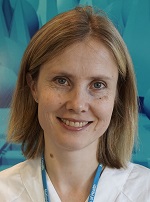The public defence will be held as a video conference over Zoom.
The defence will follow regular procedure as far as possible, hence it will be open to the public and the audience can ask ex auditorio questions when invited to do so.
Click here to participate in the public defence
Due to copyright reasons, an electronic copy of the thesis must be ordered from the faculty. In order for the faculty to have time to process the order, it must be received by the faculty no later than 2 days prior to the public defence. Orders received later than 2 days before the defence will not be processed. Inquiries regarding the thesis after the public defence must be addressed to the candidate.
Digital Trial Lecture - time and place
Adjudication committee
- First opponent: Professor Liv Eidsmo, University of Copenhagen, Denmark
- Second opponent: Professor Silke Appel, University of Bergen
- Third member and chair of the evaluation committee: Associate Professor Kjetil Wessel Andressen, Institute of Clinical Medicine, University of Oslo
Chair of defence
Professor Marit Veierød, Institute of Basic Medical Sciences, University of Oslo
Principal Supervisor
Associate Professor Jan-Øivind Holm, Institute of Clinical Medicine, University of Oslo
Summary
Atopic dermatitis is a chronic inflammatory skin disease, characterized by dry skin, severe itch, and eczematous skin lesions. Immune dysfunction, altered skin barrier and less bacterial diversity of the skin contribute to the disease process, but how these factors interact are largely not known. More knowledge regarding the disease mechanisms is necessary to develop more targeted therapy.
In this thesis, we address some of the effects of phototherapy on eczematous skin, as well as some central aspects of the immunological processes involved. Adult patients with atopic dermatitis were examined before, after a week and after 6-8 weeks of phototherapy. Disease activity was registered using validated scoring tools, skin biopsies were taken for gene expression analysis and immunohistochemistry, and bacterial swabs analyzed by 16S rRNA gene sequencing.
The results showed that phototherapy was efficient, both in terms of objective and patient-oriented measures. After one week of treatment, we observed significant changes in the gene expression of eczematous skin, and several of the genes with altered expression were related to inflammatory processes. We did not observe any significant changes in the bacterial diversity of the skin at this early timepoint. However, after 6-8 weeks of treatment, the bacterial diversity approached that of non-lesional skin.
Our results identify possible new treatment targets for atopic dermatitis, and indicate that the immune alterations are primary events, rather than secondary to the bacterial alterations. We also compare human, rat, and mouse models, demonstrating that the rat may be a better model for mechanistic studies of complex immune interactions in humans.
Additional information
contact the research support staff
